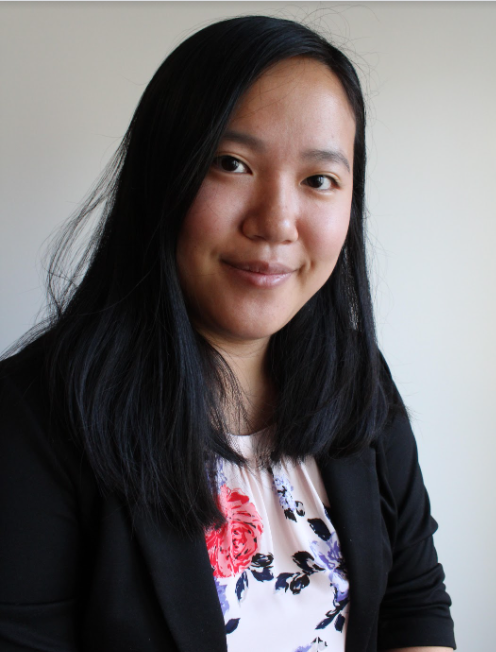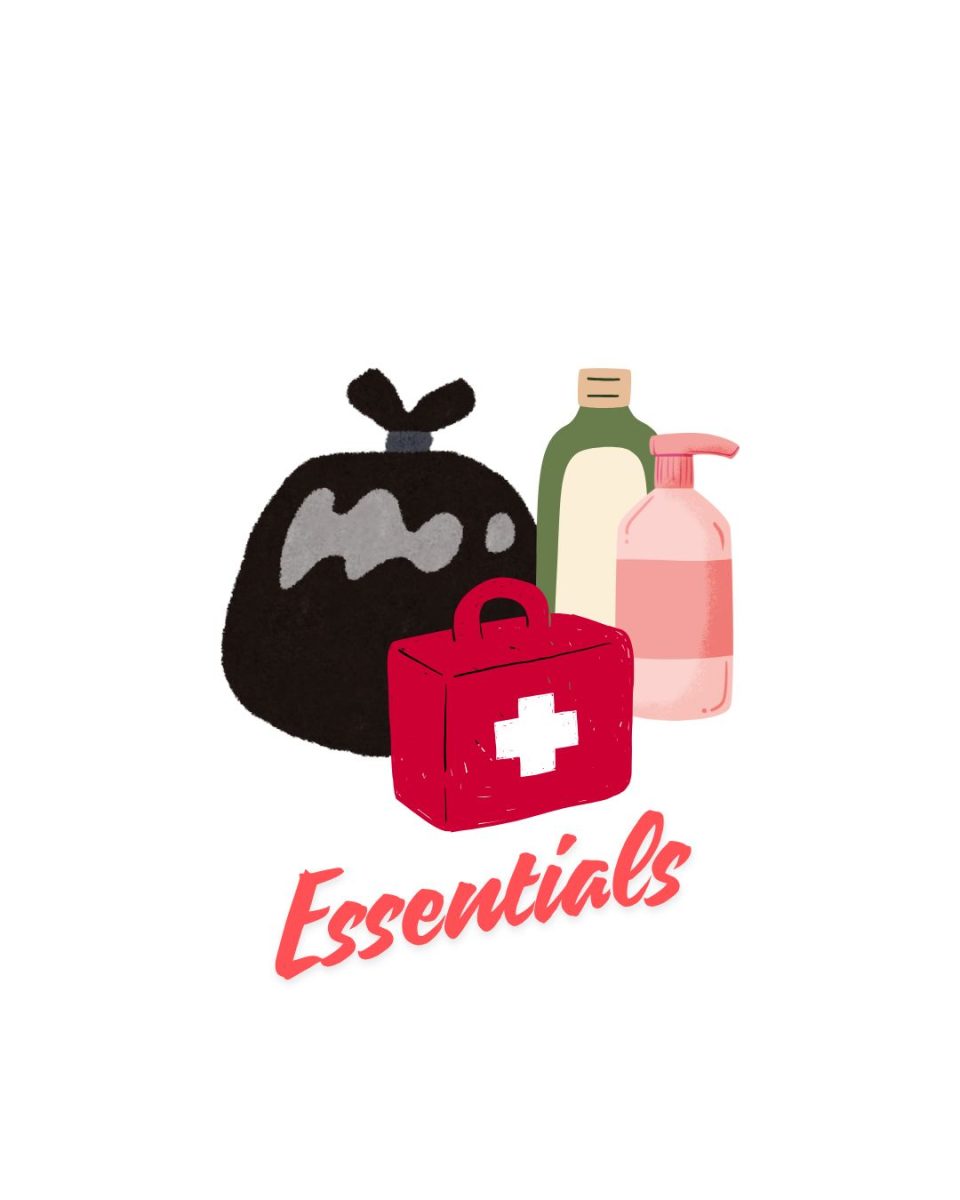The year of 2020 started like any other. It was the start of my junior spring semester and I began bracing myself for the loads of homework, projects and classes that I was anticipating. What the world, including myself, was not anticipating was a global pandemic which cut the semester short, ended all my plans with friends and led to a rise in Asian discrimination, hate and racism.
From the very start of the pandemic, terms such as “Chinese-virus,” “Kung-Flu,” and the “China-Virus” were spread on social media, by high powered figures and everyday people. As a person who was born in China but has lived my entire life in Northern New Jersey, I felt shocked but not surprised by these widely used, racist and offensive terms. At the beginning I mostly felt sad.
I spent my entire childhood in a small North Jersey town with a 95% white population. In my high school graduating class, I graduated with two other Asian American Pacific Islander (AAPI) students. In elementary school classmates would tease and say rude things to each other, as most kids do at that age. However, as the only Asian student in the class, I specifically would get the common eye pulls and distinct racist songs sang at me implying that Chinese people were dumb, gross and ugly.
As my classmates and I grew up the racist teasing and bullying lessened and the microaggressions began. Microaggressions are subtle, oftentimes unintentional interactions or behaviors that communicate some sort of bias towards a person based on their race or ethnicity, specifically culturally marginalized groups. I was being commonly confused for the only other Chinese girl in my school. People would assume my proficiency in math was purely because I’m Asian rather than because my white mom was a mathematics teacher (who they would also assume to be Asian). Once, a white woman in my hometown asked me if I worked at a nail salon, thinking that she recognized me (I’ve never worked at a nail salon).
Before 2020, I had experienced overt and subtle racism because I am Asian American. I always came out of those situations feeling self-conscious and angry. However, I never emotionally processed or reflected on any of the experiences until May and June of 2020.
During that time, the entire country experienced a surge of protests against racial injustice after the tragic murder of George Floyd. Meanwhile, I was trapped in my house due to COVID-19 and my increased fear of being a target due to being Asian. But, I wanted to do something to support the Black Lives Matter (BLM) movement, so I started reading articles and books, following and scrolling through Black activist accounts on Instagram, listening to podcasts and watching the mainstream news channels. I worked to become educated about racial and ethnical identities, the history of racist laws and acts by the United States and the current issues of white privilege.
But I also decided to reflect on my own racial and ethnical identity, the history of Asian racism in the United States and the current shared struggles of the AAPI community because of white privilege. I gained a better understanding of who I am, but I also gained a better understanding of how people viewed me. I faced my internalized anger and frustration at the world and worked hard to stay informed on the latest Asian American news, which is rarely ever shown in mainstream media. Here are some of the news stories reflecting the rise in anti-AAPI hate over the past year:
March 2020: Reports of increasing Asian hate crimes at the onset of the pandemic.
April 8, 2020: An Asian American woman in Brooklyn, NY was attacked with acid while taking out her trash.
Late Jan. 2021: An 84-year-old man originally from Thailand was assaulted while walking down a street in San Francisco and died a few days later.
Feb. 3, 2021: A 61-year-old Filipino American was slashed in the face on an NYC subway.
Feb. 16, 2021: A 27-year-old Korean American and Air Force veteran was beaten while having racist slurs shouted at them in Los Angeles.
March 16, 2021: An Atlanta shooting focused on Asian-populated businesses killed eight total people; six were Asian American women, and law enforcement described this serial murderer as “having a bad day.”
Mid-March 2021: A national report by Stop Asian Hate showed 3,795 reported incidents of Asian discrimination within the past year. (I myself have contributed to the number by reporting incidents.)
These are only a few of the incidents that have resulted in my increased fear and anxiety for my physical safety because I am an Asian American woman. I have experienced racism in the past, but never have I feared the people around me as much as I do now.
The pandemic has been difficult for everyone all over the world, but I’ve had to face other difficulties purely because I was born Asian.
For my fellow Asian American students at Rowan University: you are not alone in your feelings of fear and anxiety. There is a virtual Asian American support group every Wednesday at 10 a.m. (a link is provided at the bottom of this article). These are difficult times for the Asian American community but know that you are supported and there are many people that will have those difficult and emotional conversations with you. When I attended the support group, I felt welcomed and confirmed that I’m not alone in all my feelings that many of my non-Asian American friends cannot relate to. (See below for details of more Rowan AAPI Support events.)
For those that are struggling to relate and understand my Asian American point of view:
Think about one physical element of your body, maybe it’s your acne, a mole, the color of your eyes or your shoe size. Now imagine that thousands of people with your shoe size were being attacked and harassed purely because they have size 9 feet. In some of these attacks, the motivation has been confirmed to be because the victim wears size 9. In other cases, the motivation is still being debated over, but either way, another person with your shoe size has still been brutally attacked and/or killed. It’s a ridiculous notion; why would anyone attack a person because they have size 9 feet? But they are, they will, and you cannot change the size of your feet so you are in more danger than your friend with a size 7. So, you are more afraid and angry that you are more afraid because people might target you for something you were born with and cannot change.
The pandemic has taught me more than the proper way to wash my hands. I have learned about racial and ethnical identities. I have learned how to better process and react when people are overtly racist or enact microaggressions. I have become more aware of the world and the struggles of different people. A year ago I saw the racist words I heard and the microaggressions I experienced as at the least annoyances and at the most emotionally scarring. Now being Asian American in the COVID-19 pandemic, I walk in public being extra aware of my surroundings and continuously researching how to best process and react to discrimination, racist harassment and physical attacks.
For everyone: Please support the AAPI community through events, donations and by educating yourself on current events. When you are prepared, bring yourself outside of your comfort zone to reflect and have those uncomfortable conversations with friends and family. Check in with your Asian American friends, ask how they are, send a simple text showing your support for them. Anyone can open the conversation on discrimination, just be sure to let your friends of color choose how much they want to say and what they want to speak about. Most importantly, listen and hear them. Read about underprivileged and marginalized groups. Report and/or step in (if you feel safe enough) if you see discrimination. Donate to organizations and support POC-owned businesses. You’ve already taken one step in supporting the AAPI community by reading this article and for that I thank you.
Below are events for Asian American support and discussions with details:
- Rowan University is hosting a panel of Asian scholars discussing the Atlanta shootings and Asian hate crimes at 2 p.m. on Thursday, March 25. This panel is being sponsored by various Rowan University Departments. Email [email protected] for the virtual meeting information.
- The Rowan University Philippine American Coalition (RUPAC) is holding a solidarity march in support of the Asian American community on Saturday, March 27. The meet-up is at 11:30 a.m. and the march starts at noon. It will be from Glassboro Town Square to Bunce Green. More information @asiancommunitysolidaritymarch on Instagram.
- To join the Asian American Support group “I Am Asian” go to ProfLink and type “I Am Asian” into the event filter. Then select the date you are interested in attending. RSVP is needed! The next meeting is Wednesday, March 31 at 10 a.m. Register here.
Other organizations and places to donate:
- https://stopaapihate.org/
- https://www.gofundme.com/c/act/stop-aapi-hate
- https://advancingjustice-aajc.org/impact
- https://www.gofundme.com/f/sf-api-victims-and-survivors-assistance-fund
- https://www.aapicovid19.org/resources
For comments/questions about this article, tweet @TheWhitOnline.
























































































































































!["Working with [Dr. Lynch] is always a learning experience for me. She is a treasure,” said Thomas. - Staff Writer / Kacie Scibilia](https://thewhitonline.com/wp-content/uploads/2025/04/choir-1-1200x694.jpg)











































